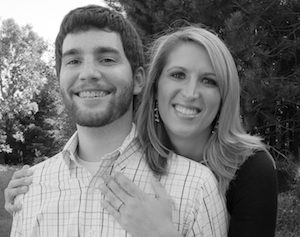 As part of our series about different types of youth work, this week we have an interview with Adam Griffith, a youth worker in Thailand.
As part of our series about different types of youth work, this week we have an interview with Adam Griffith, a youth worker in Thailand.
1. What type of youth work do you do?
There isn’t a good word for it in the English language. We live and work in Chiang Mai, Thailand’s second largest city and unofficial education capital of the northern region. Families, that are able, from the surrounding villages send their children into the city to study.
The schools these urban dwelling rural youth attend aren’t boarding schools. Housing options include staying with relatives, a temple or what most refer to in English as a youth hostel. Each of these independent hostels – or boarding schools minus the classrooms – look and feel a lot like orphanages, differing mainly in that most of the youth have parents back in their home village.
We are in the midst of creating a ministry to providing training and resources for the youth workers who staff these hostels, with the hopes of helping to turn them into places known for discipleship.
2. What do you do in an average week?
Last year this question would have been easy. I studied the Thai language at a university, with private tutors and practiced it with anyone patient enough to listen to me.
Life is more chaotic now though. Our team just finished a fairly large scale survey project trying to get a true assessment of the current assets and needs. We used the information we gathered from that project to create our strategy moving forward.
Each week seems so different from the last. The next couple, we’ll spend sharing the data from the survey project with the leaders of the hostels and introduce them to our ministry/foundation.
3. How long have you been doing this type of youth work?
My wife and I moved to Thailand a little over a year ago.
4. What other types of youth work have you done previously?
I’ve volunteered at a few different church-based youth ministries and spent a few years working out of the YouthHOPE office, building a global youth ministry internship program.
5. What age range do you work with?
We focus on youth ages 12 to 24.
6. What’s unique about working with youth in Thailand?
The context of doing youth ministry based out of the youth hostels of Chiang Mai is unique in that the settling simply doesn’t exist in most of places around the world.
Our holistic approach to youth ministry might be considered unique by some.
7. What are some of the good things about your type of youth work?
I enjoy getting to work with both youth themselves and also youth workers.
8. What are some of the challenges of it?
The Thai language is very tough for native English speakers to learn. Most of the hostels that self-identify as being Christian in some way were set up by independent missionaries or churches, so there is no network, no website, no one who really knows how many of these youth hostels there are.
Alongside our survey project, we’ve began creating a database of where they are and how many youth live at each one, but we estimate there is another hostel we are still unaware of for each of the ones we are currently connected with in some way.
No blue print, no books to read on the positives of one approach versus the other and no one who has been doing it for decades to ask for advice.
9. Why are you passionate about doing youth work in Thailand?
Both my wife and I have known since college – and since before we knew each other – that we wanted to do youth ministry outside of the States. After we got married, we began praying about what type of youth ministry and where.
Eventually, our current teammate Anirut Rattanapamonsook shared with us his story of growing up in a youth hostel. He shared with us stories of his friends getting sucked into drugs or sex-trafficking, and then he shared with us his vision to move into the city and create a preventative ministry focusing on discipling this demographic of youth.
I’m passionate about the potential impact these youth could have, if discipled, as they spread back out around the northern part of this almost entirely Buddhist nation.
10. What would you recommend for someone wanting to get into this type of youth work?
Get in touch with YouthHOPE. Share with them where you are at, and they will be able to point you to a few next steps.
11. Is there any special training or qualifications required?
No. I hope not at least, most days I feel quite under-trained and under-qualified. A passion for working with youth, a willingness to be flexible, a high tolerance for ambiguity and a teachable spirit would all be highly recommended though.
About Adam (and his wife):
Adam & Kristy‘s story as a couple begins the same time YouthHOPE’s story began. They met in FL after moving down to work with YouthHOPE as recent Bible College graduates (Cincinnati Christian & Ozark Christian) with a passion for doing youth ministry outside of the States.
They quickly took a liking to each other & were married in April of 2010. Adam & Kristy deeply value the 3 years they spent serving on the development team and trust that the knowledge & experience they gained during that time will be of great value as they now focus on ministering to youth in Chiang Mai, Thailand.
You can follow Adam on Twitter and find out more about YouthHOPE here.
Please feel free to use the comments below if you have any questions about Thai youth work. If you’re also a youth worker in Thailand, we’d love to hear about your experiences in the comments too.
If you work in a different youth work field we’d love to interview you for this series, so please get in touch!
You can also connect with us by:
- Signing up to receive our posts via email
- Following us on Twitter
- Liking us on Facebook
- Signing up to our RSS feed

 As part of our series about
As part of our series about  As part of our series about different
As part of our series about different